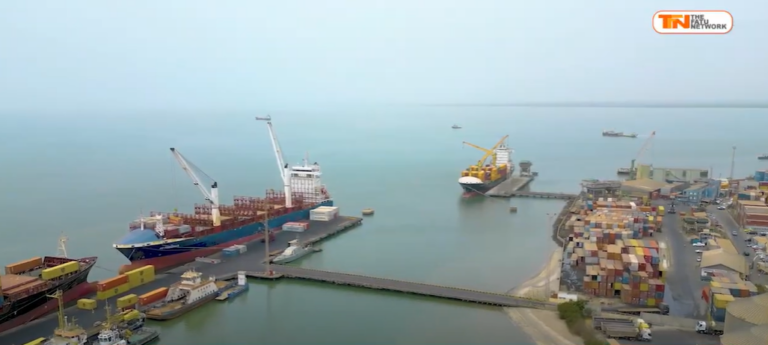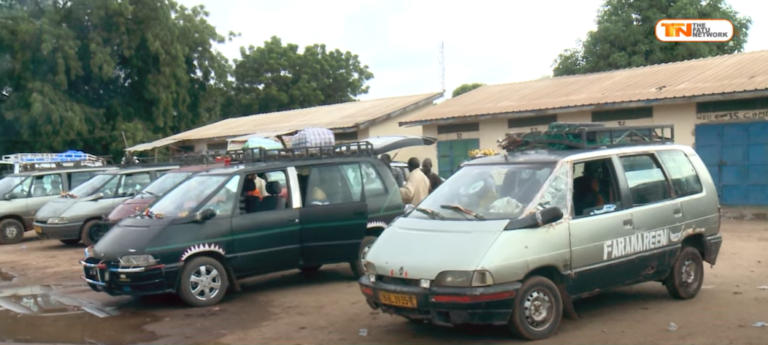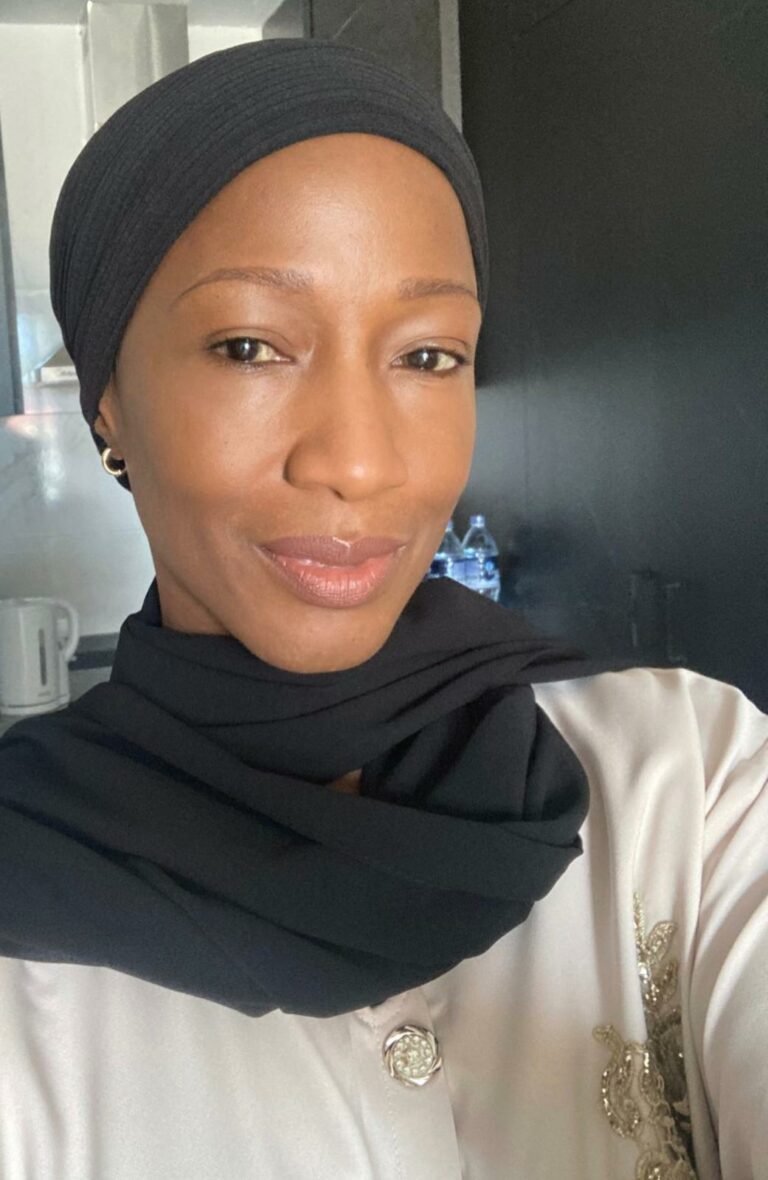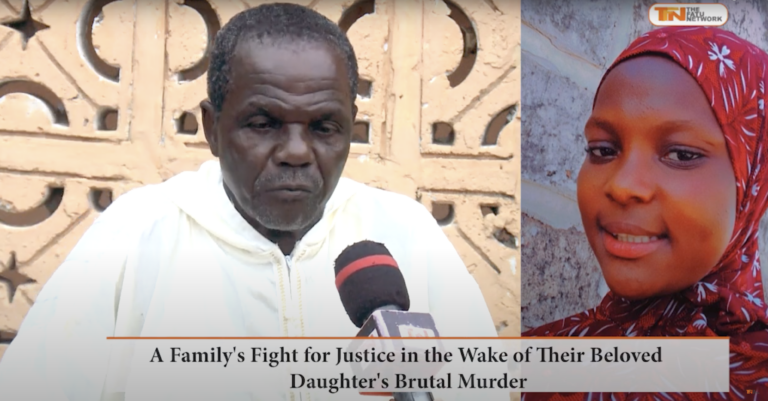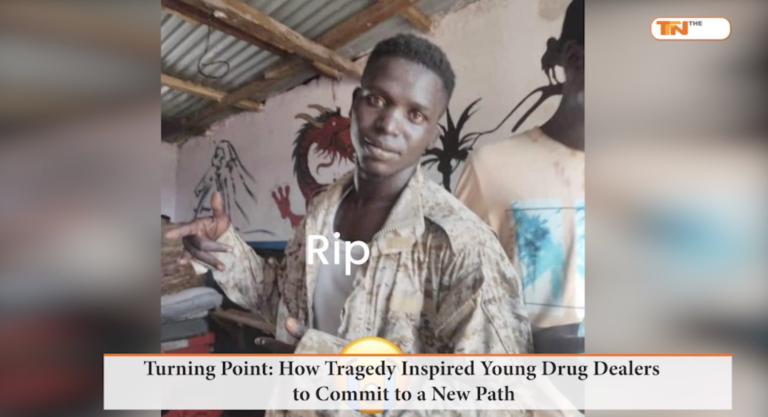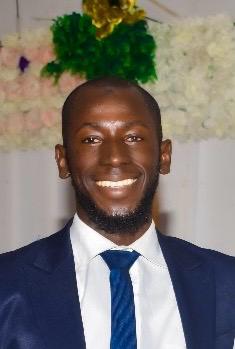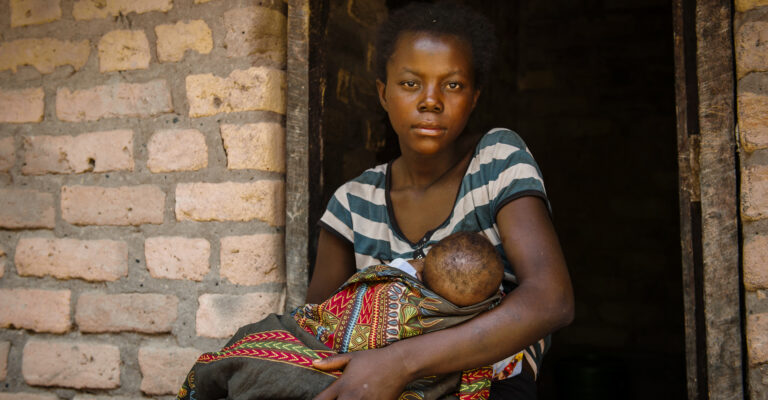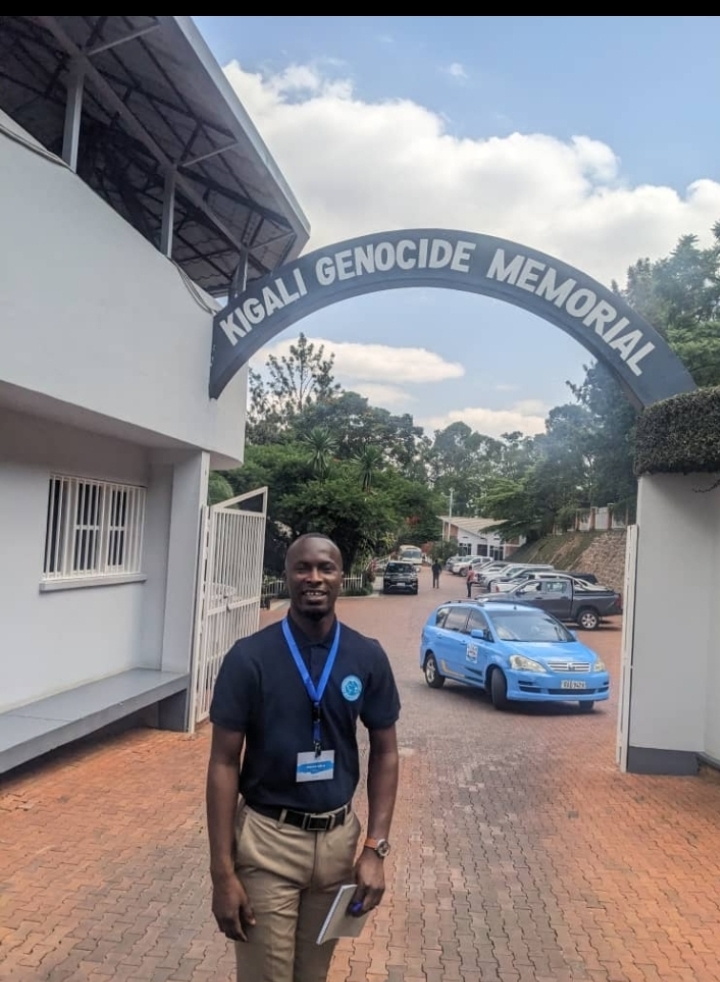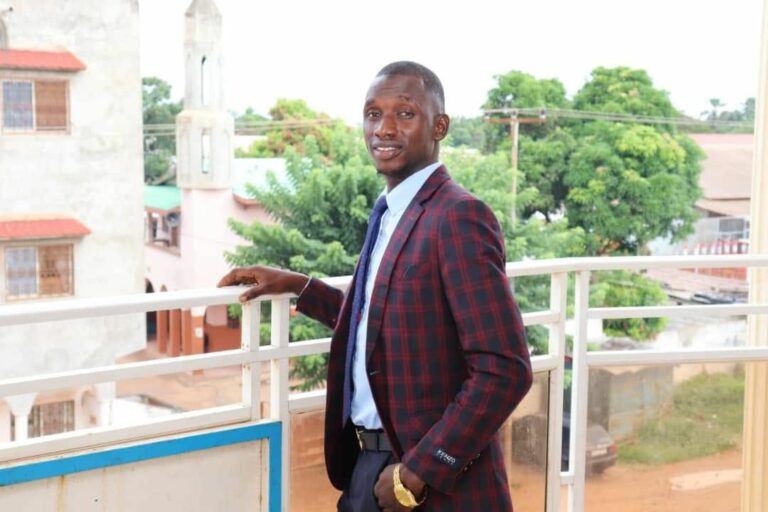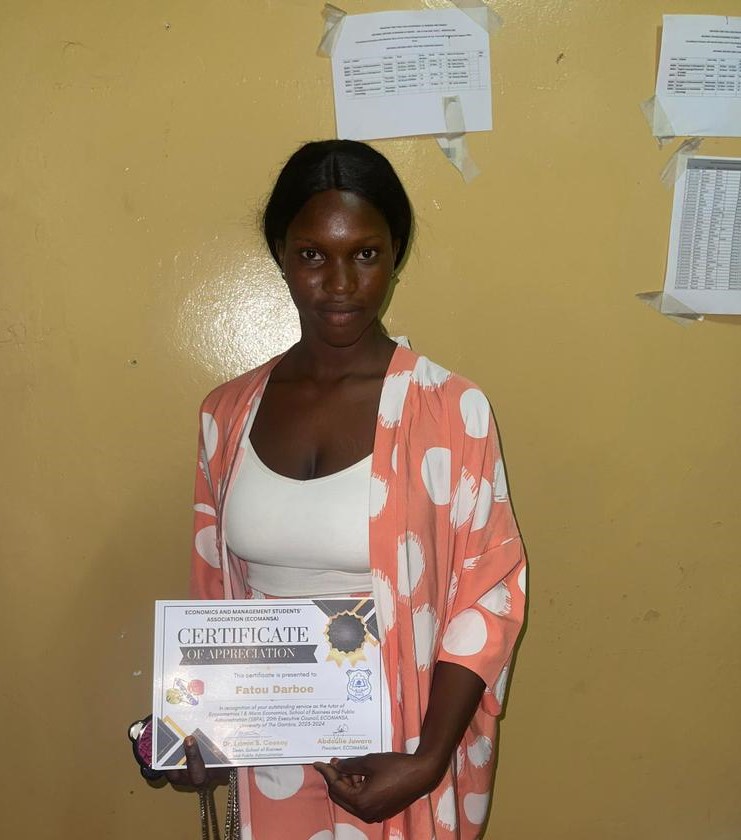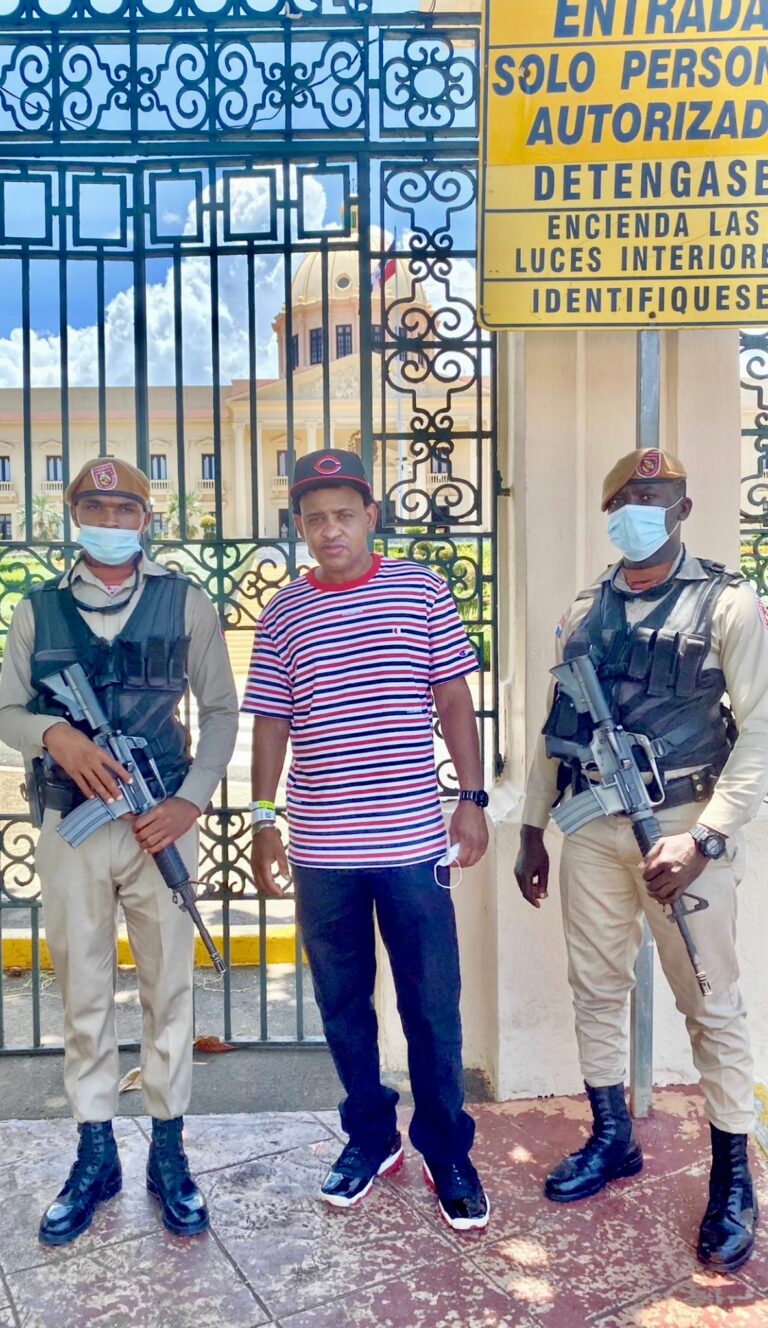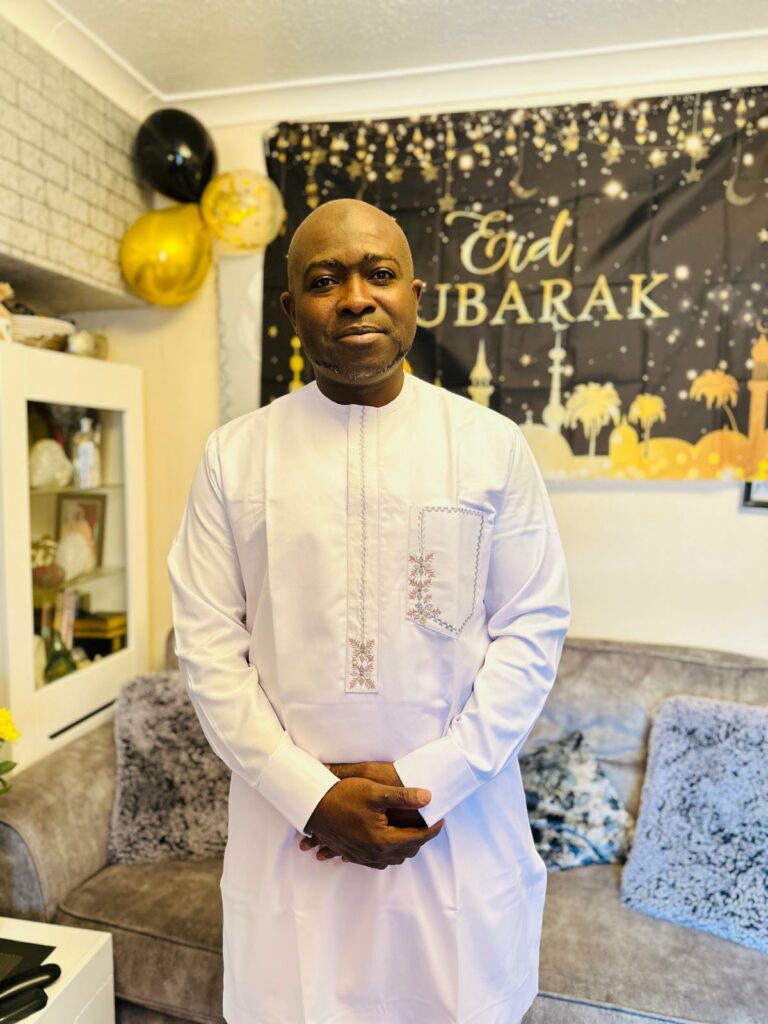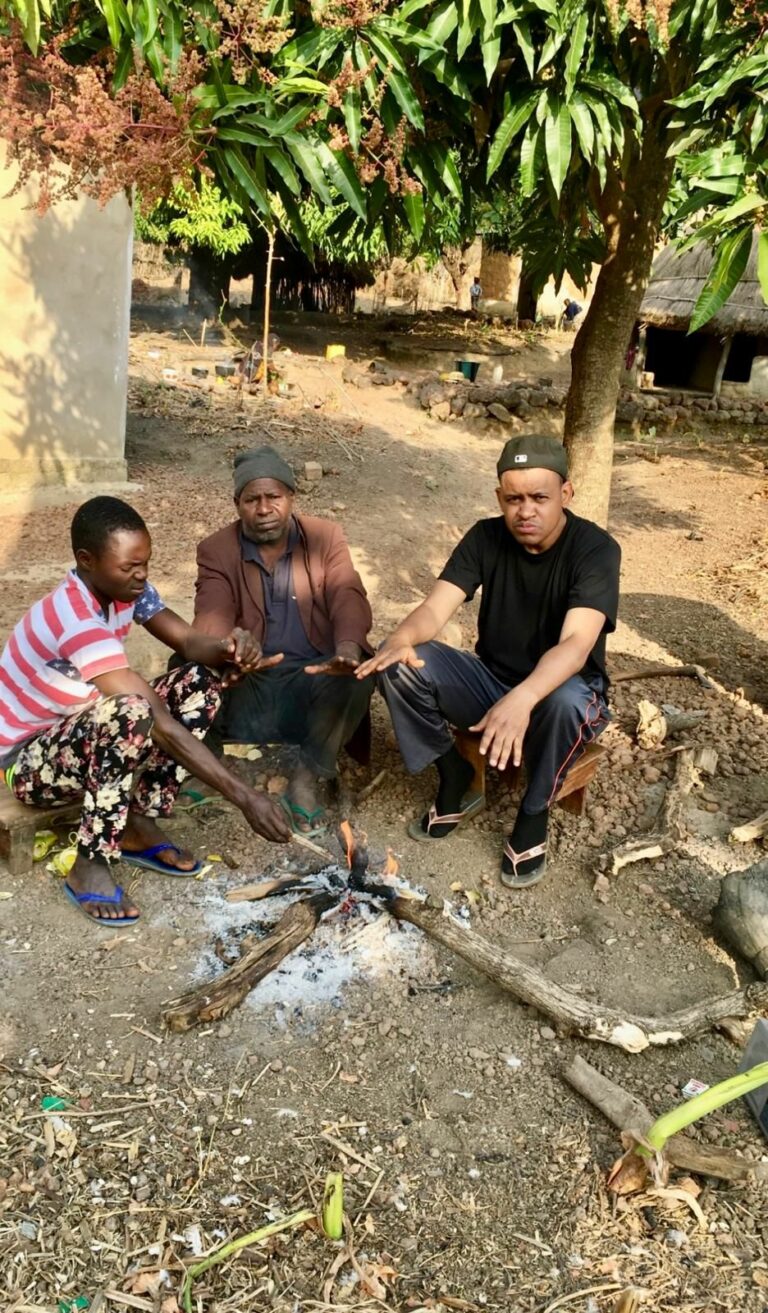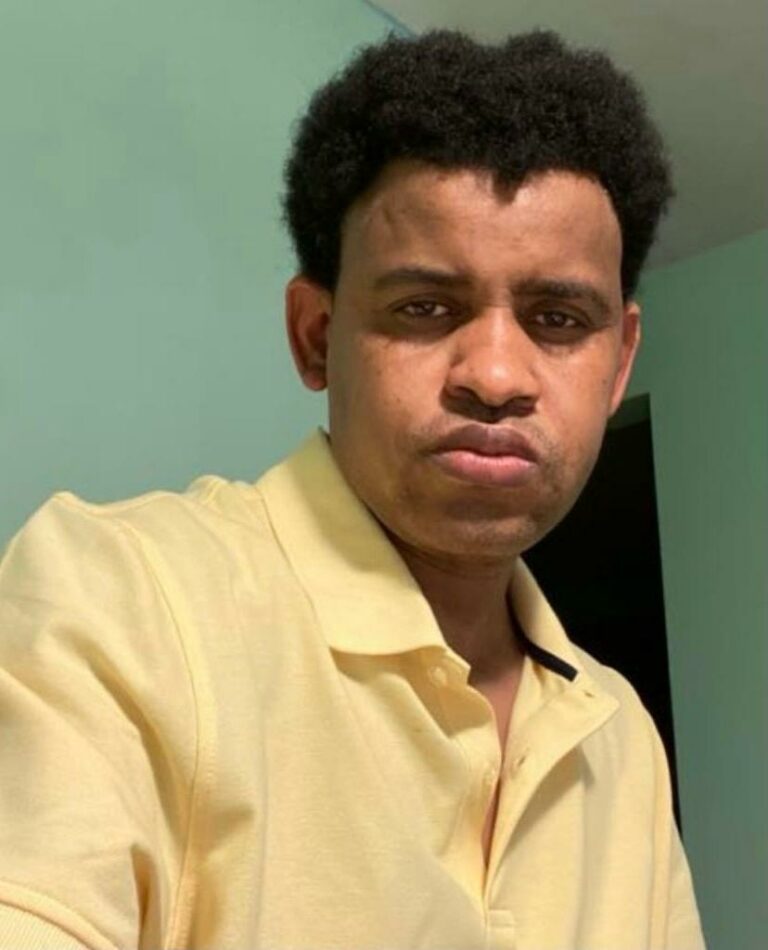Transforming Gambia’s Maritime Future:Banjul Port Expansion, New Deep Sea Port Others With Albayrak Group
Drivers in Amdalie Call for Improved Border Collaboration to Ease Access
Drivers in Amdalie Call for Improved Border Collaboration to Ease Access
A Response to Opinion Letter by “Fatou Janneh”
OPINION
By Dr. Fuambai Sia Ahmadu Founder, Gambian Women are Free to Choose (GWAFC)
Why I support the Women’s Amendment Act 2024 to Repeal the Female Circumcision Ban
“Fatou, I do hope that we can someday work together, or at least continue to have these conversations about our bodies and our choices as African and Muslim women. The female circumcision ban would prevent these important dialogues among us, and would in effect recolonize our bodies and suture our voices. The female circumcision ban removes a woman’s right to choose; western women in liberal democracies would never accept such infantilizing restrictions to their bodily autonomy. We shouldn’t either.”
As promised, I am writing this letter to Fatou Network in response to an opinion piece by one Fatou Janneh, which was directed primarily at me, my work and my advocacy for the rights of circumcised women to equal dignity with all women and men in The Gambia and around the world. (I am attaching my image to go with this piece and ask that you not replace it with the intentionally demeaning image of a razor blade or the like). As I indicated in my note to Fatou, I welcome her letter, her concerns, her criticisms and am humbled by some of her generous compliments of my interview at Kerr Fatou. In fact, I would much rather for us both (and all affected women) to be having this conversation in person, side by side, outside of the public eye.
Let me start by addressing Fatou’s assertion that I have little to no knowledge of the experience of female circumcision in The Gambia. First of all, I underwent what WHO classifies as Type IIb, the excision of the exposed clitoral foreskin and glans (resembling what western doctors now perform as “clitoroplasty”) as well as trimming of the labia minora (resembling the increasingly popular western women’s “labiaplasty”). My traditional operation was performed in Kono, Sierra Leone, in “the bush” like any other female initiate; I had no special privileges. Yes, I was an adult college student; however, my sister was seven years old and was circumcised alongside me. The excruciating pain and immediate trauma I experienced was real. What is also real for me is that my excision was an aesthetic enhancement and did not impair my ability to enjoy sex and have orgasms. I also enjoyed the women’s masquerades, celebrations and coming together of my maternal and paternal relatives in Kono.
I became an anthropologist and came to The Gambia (Sierra Leone was under a civil war) in the late 90s to understand the local meanings of female circumcision and why the procedure is performed and celebrated by women. I also knew all those decades ago that future generations of women and girls like me would probably benefit from my knowledge and experience to help them make sense of female initiation and circumcision. I married a proud Mandinka solider, the late Major Ebrima Cambi, from Kiang and have four step-daughters residing in Brikama, who are all circumcised.
When I came to The Gambia, I conducted participant observation in dozens of initiations and circumcisions among many ethnic groups mostly in Brikama but also in neighboring towns and as far as Basse (I have since observed hundreds of varying female circumcision procedures in different countries and cultural contexts over the past two decades). I also worked for five years as a senior and lead consultant at UNICEF in The Gambia, analyzing, among other things, Gambia’s compliance with the Convention on the Rights of the Child (CRC) and Convention on the Elimination of All Discrimination Against Women (CEDAW). I was especially interested in the practice of female circumcision and advised UNICEF and The Government of The Gambia at the time that this deeply valued practice was related to important cultural and religious ideals
of gender inclusivity, complementary and interdependence and could be justified under most of these human rights provisions.
Since this time, I have conducted research, lectured and presented papers on female
circumcision in the U.S., Europe and other parts of the western world. I have worked closely (and still do) with scholars and practitioners across academic disciplines, as well as the medical and public health field who are critical of the WHO FGM terminology and biased policies that single out and condemn African and Muslim women’s practices while openly supporting the medicalization of parallel practices among western women, males, intersex, and transgender persons.
So, Fatou, I believe for all these personal, academic and professional reasons, I have the right to speak for myself and on behalf of hundreds of thousands of grassroots women and girls in The Gambia who support my stance on our right to choose to uphold (or abandon) female circumcision.
While I understand and truly empathize with some of your own story, Fatou, I did not suffer the way you say you did and most of the circumcised women I have lived and worked with do not share your experience. In the past, I have provided referrals for dozens of African women seeking to file bogus FGM asylum claims (exaggerating or completely fabricating their experiences and fears – the more horrific the story, the better) so that they could stay in western countries, work and better themselves and their family members. I understood their motives as “survival”.
I have scrutinized the medical evidence, along with the aforementioned colleagues, and have not come up with any research to substantiate that female circumcision practices (and I refer to all forms) are necessarily or generally harmful or that these procedures attenuate female sexual desire, feeling, and capacity for pleasure and orgasms. I have been critical of the anti-FGM movement: Many years before some of today’s FGM “survivors” were even born, I was offered an opportunity to join the WHO consultancy team and global campaign to “eradicate FGM” in Africa in return for my denial of or silence about my true experiences. I politely turned these down.
I disagree with you about “labiaplasty” and other forms of predominantly white women’s FGM and the idea that white, educated and affluent women have agency and can make choices, while African and Muslim women (even those of us who are highly educated professionals) are mere “prisoners of ritual”. I grew up in both western and African cultural contexts and believe that these kinds of racist and sexist assertions, especially uttered by Africans themselves, are very unfortunate. My contention is that while you are asking for our bodies to be recolonized by white western women who are the financiers or funding brokers for FGM campaigns, these same “feminists” are encouraging the cultural appropriation of our traditional procedures that are now rebranded as female genital cosmetic surgeries – right before our eyes. Western
doctors are making millions of dollars offering the same procedures as you petition for our mothers and grandmothers to be jailed for performing our ancestral matriarchal and Islamic religious traditions. Note that these same “feminists”, western governments and
representatives of international organizations and NGOs who say that our traditional and
religious practices are “harmful” are refusing us the benefit of medicalization and other “harm reduction” interventions that they legalize for white or western women and their daughters.
I also disagree with you about some of the oft repeated sequalae of “FGM” related health hazards, such as fistulae which you mentioned in your letter. Scientific studies have demonstrated that there is absolutely no link between fistula and any form of female circumcision. I disagree that female circumcision is different from male circumcision and that the latter should be an exception, despite the fact that it has health risks and hundreds of boys die of botched circumcisions in Africa, in America and around the world each year. I disagree that female circumcision is upheld because of universal patriarchy and the sexual subjugation of women for the purpose of marriage and reproduction – this is a western feminist lie to convince you that your female ancestors did not exist let alone contribute to the creation of their own worldview.
It is not my experience that the exposed “clit” is necessary for sexual enjoyment and orgasm. I discovered that I was not unique; most women who have had the same type of excision continue to love and enjoy oral, manual and penetrative sex and have satisfying orgasm with or without a sexual partner.
I am absolutely sick and tired of the gaslighting and other psychological tools used by anti-FGM campaigners to deny the majority of circumcised women the reality of our bodily experiences and deprive us of our equality, dignity and fundamental human rights to practice and enjoy our culture and religion. I am utterly revulsed by the continued use of horror inducing images, such as the one accompanying your piece, of random, dirty razor blades or knives held by disembodied black female hands – in place of the absence of real medical or scientific evidence of the supposed “deadliness” of female circumcision.
I work hard in our communities to also dispel myths about uncircumcised women. I absolutely believe that no woman should be forced to undergo female circumcision and that a mother or caregiver should have every right protect her daughters (or sons) from circumcision until they reach the legal age to decide for themselves. I work with and support long time activists, such as Zainab Nur, a Somali born woman living in Cardiff, who did the work in her community to achieve complete abandonment of infibulation without any FGM laws in existence and without ever using the word “mutilation”. Like me and millions of affected women, Zainab rejects the term FGM and regards it as an insult to our African and Muslim mothers and grandmothers who birthed us.
More to the point, I want to see African and Muslim women’s bodily or genital practices treated the same way as parallel practices within other communities around the world. This to me is true racial and gender equality. This is what we should be working to ensure – that all women everywhere are able to exercise choice and are afforded the same personal and parental autonomy to make decisions for themselves or deem what is in the best interest of their children.
Fatou, I do hope that we can someday work together, or at least continue to have these
conversations about our bodies and our choices as African and Muslim women. The female circumcision ban would prevent these important dialogues among us, and would in effect recolonize our bodies and suture our voices. The female circumcision ban removes a woman’s right to choose; Western women in liberal democracies would never accept such infantilizing restrictions to their bodily autonomy. We shouldn’t either.
Back to The Gambia and the proposed Women’s Amendment Bill 2024: If, as a society, we insist that underage girls must have a right to choose then the same must also be true for boys. If the health of a girl is deemed to supersede her parent’s cultural or religious rights, the same ought to be the case for boys – no culture or religion according to this logic should be allowed to justify the accidental killing or maiming of boys due to botched circumcisions. If, Fatou, you truly are concerned about the rights and “bodily integrity” of children, then you and other FGM survivors should reach out to male genital mutilation survivors (I can connect you) and introduce a bill that would affect both sexes equally. Then, my sister, you would have my full support. In the meantime, I stand with the majority of grassroots women in The Gambia and firmly reject the importation and imposition of a Western feminist patriarchal female-only ban
against our gender inclusive-cultural and Islamic circumcision practices.
The Dilemma of Gambian Women and FGM/C Practice: Response to Dr. Fuambai Sia Ahmadu
OPINION
By Fatou Janneh
Listening to Dr. Fuambai Sia Ahmadu, an anthropologist and researcher, and also the founder of “Gambian Women Are Free to Choose,” speak on Kerr Fatou Brunch Time has prompted deep reflection on my part. I find myself questioning what I truly desire from my degree, the kind of knowledge I seek, how I want to serve my community, and how I want to be remembered. Dr. Ahmadu spoke passionately about protecting something she has little or no personal experience with, reducing everything to propaganda and gaslighting. This issue is not about activists or feminist agendas; rather, her stance consolidates a patriarchal system that promotes harm.
The debate around female genital mutilation/cutting (FGM) is not about gender inclusivity or racism. It is fundamentally about the severe consequences of the practice. Her argument on FGM is weak and baseless, attempting to diminish the severity of the practice and the suffering it causes. FGM is internationally recognized as a violation of human rights, particularly the rights of women and girls. It leads to severe physical and psychological harm, including chronic pain, infections, complications in childbirth, trauma, anxiety, and depression. Organizations such as the World Health Organization (WHO) and the United Nations (UN) have documented these significant health risks extensively.
I traveled to Chad in 2015 where I had the opportunity to see some women who were abandoned by their spouses’ families because of vesicovaginal fistula (VVF), a condition resulting from prolonged, obstructed labor that causes a hole to form between the bladder and the vagina, leading to continuous urinary incontinence. I was told that it was due to FGM. In fact, I listened to their Health Minister at the time who appealed to religious leaders, especially to the Muslim community, to add their voices in the promotion of the well-being of women and children. My Malian friend told me what she went through during her first birth, and when we traveled together from Bamako to Njuno, I saw her elder sister, whose childbirth experience almost deformed her walking. The worst I ever heard was listening to a Sudanese colleague narrate her family ordeal just because of this harmful practice. Mind you Dr., these journeys weren’t “FGM adventures.” Some were coincidental, while others, one conversation led to another. Likewise, in The Gambia, I went through the process myself and I know how my body looks. Unlike my sisters, I was a little over 10 years old when I was initiated in Busumbala because there was constant postponement of all the selected holidays. So, that year, it was during Christmas, and it was my worst nightmare. When we finished high school, my childhood friend got married soon after. Her family claimed they forgot that she was sealed because, according to her mother, she was circumcised when she was a toddler. Her husband couldn’t penetrate her, and both of them couldn’t say anything because they were embarrassed, and her husband’s culture does not practice such customs. It was over a month before she could get some help.
Dr. Ahmadu claimed this practice is an attack on our culture, but that’s not true. Our culture is empowering, but we cannot adhere to harmful practices. She also argues it is a religious practice, but refraining from this practice does not make one more Muslim than others, as it is not obligatory in Islam. Cultural practices are evolving, and we must prioritize the health and well-being of our communities above all else. So, who is brainwashed here, Dr. Ahmadu? Are you defending something that wasn’t there or trying to get back at those who may have discriminated against you? This isn’t about the West versus Africa or white against black—it’s about the health and rights of women and girls.
The notion of consent in the context of FGM is deeply problematic, given the societal pressures and misinformation that surround the practice. Advocating for gender equality in bodily practices and the decriminalization of FGM overlooks the power dynamics and coercive environments in which many women and girls live. True gender equality and empowerment come from ensuring that all women and girls can live free from practices that endanger their health and violate their rights. Instead of perpetuating a practice that has been widely condemned for its harmful consequences, we should focus on uplifting and empowering women through education, healthcare, and economic opportunities. Preserving cultural identity and respecting traditions can and should be done in ways that do not cause harm.
Moreover, it is crucial to address the comparison made between FGM and labiaplasty. Dr. Ahmadu accuses the WHO of bias for not considering labiaplasty as mutilation and claims this stance is rooted in racism and discrimination against African women. However, there are fundamental differences between the two practices. FGM is typically performed on minors without their consent, often as a rite of passage or for cultural reasons, leading to lifelong health issues. In contrast, labiaplasty is generally performed on consenting adults for cosmetic or medical reasons, often within a regulated medical environment with anesthesia and proper aftercare. Regarding health risks, FGM involves the removal or damage of healthy genital tissue, leading to severe pain, infections, complications in childbirth, and psychological trauma. Interestingly, FGM often involves coercion, with young girls unable to make an informed decision. In my case, I was deceived, although I suspected what it was going to be. I would have never undergone it if given the chance, and I experienced significant pain, especially during menstruation after the procedure. If I was left intact, perhaps I wouldn’t have experienced such severe menstrual pain every month which always scared the hell out of me. How many women in The Gambia would have openly discussed their sex life with you considering the culture of silence? Are you using one case study to generalize? We both know that would be unethical, and I’m unsure if you really want to tread that path. Considering you as a hero of custodian of African culture and heritage with such a practice would not put your good name on the right side of history. In contrast, labiaplasty is performed on individuals who choose the procedure, typically after reaching adulthood and being fully informed of the risks and benefits.
Na una kind dey influence di First Lady of Salone. She don dey talk say na dignity of Salone women she dey protect just for get their sympathy because e husband na di president. Dat no be propaganda?
So, there’s propaganda everywhere…. There’ll be lobbyist groups, of course, but nobody should trade the dignity and self-worth of your people because of temporary benefits if there’s any, whether it’s financial, cheap popularity, or fake influence at the international scene. Let us learn to be everyday heroes, whether we are seen and heard or not.
On a specific note, I like her comportment during the interview, her diction, and how she tends to persuasively argue her points, but they are baseless. Don’t be carried away by the euphoria, Dr. Use your knowledge, skill, and experience on the right cause and on the right side of history, Dr. Ahmadu!
Accusations of racism and discrimination should not overshadow the primary concern: the protection of women and girls from practices that cause harm. The focus must remain on the health, rights, and well-being of those affected. I urge Dr. Ahmadu and her associates to reconsider their stance on FGM and join the global movement towards protecting the health and rights of Gambian women and girls. Let us work together to honor our cultural heritage without compromising the well-being and future of our communities.
Fatou Janneh
[email protected]
Madison, WI
+1 608 298 8513
Swim for Life Gambia/ Mary’s Little Lambs
Swim for Life Gambia/ Mary’s Little Lambs: Honoring Robert Jarjue and Preventing Tragedy Through Lifesaving Skills Training
A Family’s Fight for Justice in the Wake of Their Beloved Daughter’s Brutal Murder
A Family’s Fight for Justice in the Wake of Their Beloved Daughter’s Brutal Murder
Gambia BAR Association Inaugurates New Secretariat in Kanifing
Gambia BAR Association Inaugurates New Secretariat in Kanifing
Turning Point: How Tragedy Inspired Young Drug Dealers to Commit to a New Path
Turning Point: How Tragedy Inspired Young Drug Dealers to Commit to a New Path
Kush Effect – A Piece by University of The Gambia Economics Student, Lamin Sanneh
Tears roll down when one thinks about the effect Kush has had on the youths of the smiling coast of Africa.
Watching footage from afar breaks one’s heart and fills it with sorrow. How can a country with such a youthful population be plunged into such a menace?
It baffles me to think of why anyone would be tempted to take a drug that causes their demise so swiftly. Other drugs might give pleasure to users, but Kush clearly kills in a deadlier fashion than any other drug before it.
An excerpt from the Center for Policy Research and Strategic Studies (CepRass) indicates that The Gambia has a youthful population of almost 60% of its 2.2 million people, with the majority under the age of 25. Such figures should symbolize the country’s productiveness and show its readiness to move from the circle of low-income countries with a high poverty index to at least a middle-income level in Africa. However, this is far from reality. The government has not been very supportive in striving to make this a reality. Anyway, that will be a separate piece. My problem and point of focus is the effect of Kush on our youthful population.
Despite the lapses of the government, I believe that the youths should show seriousness and integrity to move this tiny country to a better level with little or no effort from the government. Has this mindset and zeal been instilled in the minds of these suicidal youths? Sadly, I am pessimistic about that.
According to Low-income Africa – ISS African Futures, The Gambia is among the 23 low-income countries in Africa with significant debt. That menace should be eradicated or minimized by the government. The youths, including myself, should think outside the box and come up with pragmatic solutions to make their contributions felt by all. Are we not able to reduce the unemployment rate by becoming job creators in our own ways? Are we not able to learn skills and become professionals in our own ways? Are we not able to bring innovative ideas to our offices and transform them for the good of all? I know there are factors hindering some of these achievable goals, but holding all those factors constant, which may also be in dispute with reality, I think The Gambia would be in a better position than it is today.
I believe the effect would not have been felt if the youths were busy meditating and contemplating how to deal with the unfortunate state of our nation. Kush would have been cursed if the youths had been busy at their workshops. The Kush market would have been deserted if the youths were busy signing business deals with potential customers.
What is nicer than having self-independence and financial freedom? Hello fellow youths, let’s make our nation and her people proud by contributing positively. Let’s rethink and redo things for the betterment of ourselves and our people. It is our country. It is either we change for the best or perish.
To this end, I reiterate line 1 of our anthem: For The Gambia Our Homeland.
Lamin Sanneh,
Final Semester Economics Student,
University of The Gambia
Opinion: Child Marriage Law in The Gambia: Protecting the Rights and Future of Young Girls
By: Michaella Faith Wright
Child marriage remains a critical issue in many parts of the world, including The Gambia. This harmful practice not only violates the rights of children but also hinders their education, health, and overall development. In response, The Gambia has taken significant legislative steps to combat child marriage and protect the rights of young girls.
The Legal Framework:
In July 2016, The Gambia made a historic move by amending its Children’s Act to explicitly prohibit child marriage. The amendment defines child marriage as any union where one or both parties are under the age of 18. The law mandates severe penalties for those who facilitate or engage in child marriage, including parents, guardians, and religious leaders.
Key Provisions of the Law:
Age of Consent: The legal age for marriage in The Gambia is now set at 18 years. Any marriage involving individuals below this age is considered illegal and punishable by law.
Penalties: The law imposes strict penalties, including imprisonment and fines, for individuals who arrange, participate in, or fail to report child marriages. This includes parents, guardians, and religious leaders.
Protective Measures: The law also includes provisions for the protection and rehabilitation of victims of child marriage. This includes providing access to education, health care, and psychological support.
Public Awareness: The government, in collaboration with NGOs and civil society organizations, is tasked with raising awareness about the dangers of child marriage and the importance of adhering to the legal age of marriage.
Challenges and Implementation:
While the law is a significant step forward, its effective implementation remains a challenge. Cultural norms and economic factors often drive child marriage, making it difficult to eradicate the practice completely. Rural areas, in particular, face higher rates of child marriage due to traditional beliefs and lack of awareness.
Ongoing Efforts:
To address these challenges, various stakeholders, including the government, non-governmental organizations, and community leaders, are working together to:
Raise Awareness: Through community outreach programs, media campaigns, and school-based education, efforts are being made to inform the public about the legal age of marriage and the negative impacts of child marriage.
Support Victims: Providing support services for victims, including access to education and health care, is crucial for their rehabilitation and reintegration into society.
Strengthen Enforcement: Enhancing the capacity of law enforcement agencies to detect and prevent child marriages is essential for the law’s effectiveness. This includes training police officers, social workers, and other relevant personnel.
The enactment of the child marriage law in The Gambia is a commendable step towards protecting the rights and future of young girls. However, sustained efforts are needed to ensure its effective implementation and to change the societal norms that perpetuate child marriage. By working together, The Gambia can create a safer and more equitable future for its children.
Gambians Are Responsible for the Country’s Internal Bleeding: Attitudinal Change is Needed
OPINION
By Gikey Drammeh, former Spokesperson of UTGSU legislative body
I am extremely concerned about the Gambia, a nation that has not changed in the fifty-nine years since it attained independence, nor am I aware that it is showing any indications of transformation. I cry so much sometimes when I think about the situation, we’re in. Many problems in the Gambia are getting worse. The following are a few possible contributory factors:
- Lack of patriotism: It is very terrible, depressing, and dishonest to the country that the majority of the Gambians do not have a sense of nationality (NOT PATRIOTIC). Gambians don’t love Gambia. The country should always come first in anything that will contribute to growth, but Gambians prioritize their personal gain over the wellbeing of the nation. The incorporation of civic education into our curriculum at this point is very late. It has prevented many people from becoming patriotic thinkers since their elementary school days and fostered a culture of self-centeredness, all in the name of developing oneself rather than the nation. I urge every Gambian to adopt a new mindset that prioritizes the nation over self-interest; this is what truly defines a patriot, one who dedicates their life to advancing the nation’s interests. ALL NEGATIVE MINDS TOWARD GAMBIA SHOULD BE ELIMINATED, LET’S LOVE GAMBIA AND DO WHAT IS RIGHT.
- Employment is not based on merit but on connection: Political ties, or who you know rather than what you know, are the basis for employment in the Gambia. It has been customary for many people to have jobs obtained through back doors, which means they did not fulfil the necessary qualifications for particular positions. The government of the Gambia should look into the need for significant civil service reform in order to establish an appropriate employment system in a morally upright way. This will help us have the right people in the right positions and do what is right and get it right. NO TO NEPOTISM, EMPLOYMENT SHOULD BE BASED ON MERIT.
- Poor functioning of Government Institutions: Many of the government institutions that are essential to the daily functioning and provision of services in our democratic environment are not performing as expected. A nation with weak institutions is doomed to failure. To start,
- Education system: This system in the Gambia is not as good as education in many other countries; our curriculum is not designed to help students become independent thinkers who can start their own businesses (Self Employment). Ministers in this sector should assess the educational curriculum and make improvements that would aid our education system. We should review our educational curriculum and tailor it in a format that will suit the academic atmosphere of the Gambia. However, if we want to see the kind of development we want, the government of the Gambia should prioritize education. Students are not given the learning environment and resources they need in schools to make good academic achievement. Students are confined to studying to pass exams and memorize words and numbers at schools. Instead of learning new talents or skills and gaining knowledge to start their own business (self-employment), It’s sad that even PhD degree holders are looking for jobs. People cannot create jobs for themselves, this is why the unemployment rate is high which is extremely depressing. GAMBIANS DESERVE BETTER EDUCATION SYSTEM.
- Interior: There should be a strong focus on the weakening security situation in the Gambia. National security needs to be closely watched in order to safeguard people’s lives and property as well as to foster harmony and peace. The minister in charge of this area should take the lead and work strategically with all of the heads of the security forces to support our men and women in uniform. To encourage our servicemen and women to protect lives, property, and the Gambia’s sovereignty, appropriate working conditions, protection gear, and other incentives should be provided. NO TO CRIMINALISM, LIVES AND PROPERTIES SHOULD BE PROTECTED.
- Judiciary System: Every nation’s hope and component for successful and efficient governance is this system, and the Gambia Judiciary system is weak. The legal system ought to be uniform, follow the law, and carry it out. Laws are not made to protect specific people; rather, they serve as a framework for standing up for what is right, supporting democracy, and national growth, protection of human rights, and the establishment of responsible government. NO TO INDECENT AND UNFAIR JUSTICE, GAMBIANS DESERVE A BETTER JUDICIARY SYSTEM.
- Agriculture: As it is commonly known the foundation for the development of any country. The landscape of The Gambia is favourable, with wide-open spaces, high levels of organic nutrients in the sand, and enough water bodies for the development of both crops and livestock. Agriculture as a ministry is stagnant even though it has the highest number of Master’s and PhD holders among its peers. All that we do is import rice, oil, and a wide variety of other necessities for human consumption. There’s not really much production as we expect from this ministry, because it lacks the authority and resources to engage in commercial farming due to corruption, farmers are discouraged from farming for economic gain. Instead, the majority of them practice subsistence farming, which involves cultivating for domestic consumption. The goal of becoming self-sufficient is not something we take seriously. Even though the Gambia has vast areas of land that may be used for this purpose. Why is the Ministry of Agriculture at Kombo rather than in the CRR, URR, or North Bank? Why are all Master’s and PhD holders in offices instead of out in the field carrying out technical and practical tasks? If we want to see change, let’s introduce new operating procedures in this ministry. All Agriculturalists, including the minister himself, should be sent to Jahal Pacha and numerous other farms in the Gambia’s rural areas. If done as directed, I believe this will help promote self-sufficiency in food and a sustainable way of life. ALL AGRICULTURISTS INCLUDING THE MINISTER SHOULD BE SENT TO FARMS, AND COMMERCIAL FARMING SHOULD BE ENCOURAGED AND OBSERVED CONTINUOUSLY.
- Tourism: The tourism sector of our government is the worst. What is the minister doing to support our tourism business? Nothing at all. This sector is important since it helps a state stimulate economic growth. The Gambia might have seen some changes if this industry performed as envisioned. However, it is disheartening that people in this sector only take per diem trips around the globe for fun and pleasure. Let the minister and his people use creativity to market the hospitality and tourism industry in a way that would call on the attention of tourists and foreign investors from all over the world. CREATIVE AND INNOVATIVE TOURISM WE NEED, STOP ALL UNNECESSARY TRAVELS
- Trade and Employment: As a key area for national development, the trade and employment ministry should be carefully examined. The minister in charge of this area should have a strategic approach and establish policies for his ministry that will help in the growth of the labour, domestic, and international markets. This will boost economic expansion and positively affect the lives of Gambians and businesses. It is distressing to see how pricey our homegrown products have become. Why are the items made here in our own country so expensive? Such produce should be reasonably priced so that many people can afford it. CREATE MORE JOBS AND CONTROL PRICES OF IMPORTED GOODS AND MAKE OUR HOME GOODS AFFORDABLE.
- Finance and Economic Affairs: Every nation’s ability to flourish is influenced by its financial and economic position. The motivation underlying a country’s entire development programme is this ministry. We should request that the minister in charge of this area thoroughly investigate the ministry and create strategies to oversee all financial transactions. The flow of money should be relevant and strategic both inside and outside of our country in order to defend against corruption and avoid unnecessary spending. A comprehensive financial analysis must be in place before the available money for national development can be used appropriately. NO TO STEALING OF PUBLIC FUNDS, MANAGE THE PUBLIC FUNDS, PUBLISH ALL AUDIT REPORTS, SHOW ACCOUNTABILITY AND TRANSPARENCY ON THE USE OF PUBLIC FUNDS.
- Health: Health should be everyone’s concern and it is sad to see hospitals are not equipped and find it difficult to have medicines. If our hospitals are built only to prescript medicines to go and buy at the private pharmacy, it is better we demolish all and give space for the herbalists who can help us with our traditional medicines. A lot of money was pumped into this sector, yet our public hospitals cannot even provide sufficient medicines. The minister for health should act urgently and fix this problem. This is very easy to do, just stop unnecessary workshops, treks and all forms of travel, use the money allocated for those areas and buy medicines and tools to equip our hospitals to a standard that will help provide proper medication for Gambians and non-Gambians. Maternity death rate is high in the Gambia nowadays, this is because there are no proper medical services and environments to help pregnant women in the labour rooms. NO TO CORRUPTION, WE NEED DECENT AND STANDARD HOSPITALS AND PROPER MEDICATIONS FOR THE POOR GAMBIANS!
- Environment: The environment serves as the heart for all activities and services, including accommodation, industrialization, agriculture, sports, and recreation. It’s essential as a result. The ecosystem needs to be protected and controlled; there is no justice for it. Seeing how filthy and littered the Gambia’s environment is, the government should implement laws enforcing reasonable environmental regulations to ensure that our surroundings are free of rubbish and pollutants. All parks housing various animal species should be protected; there should be no prejudice against the environment; wild animals have the same rights as humans to exist; and no reserve lands should be sold for personal gain. We should consider the younger generation and future generations for specific national structural development, as we should all be anticipating the county’s progress. NO TO ENVIRONMENTAL INJUSTICE!
- Time for politics: Since there isn’t a designated time for politics in the Gambia, dialogues regarding challenging and pressing issues that need discussion aren’t given much thought. Politicians characterize their rivals as enemies and point out their deficiencies, but they rarely take decisive action to resolve some of the challenging issues at hand. Every day and everywhere, in homes, offices, and ghettos, there will be political talks. As Gambians, it is our duty to discern when, where and how to have political discussions. To see the Gambia through for development, individuals should support one another’s efforts and give priority to the national development plan. Politics is not the solution, and it will never help this country progress. When elections are approaching, we can all play politics, but everyone else should focus on their jobs, we all have rights to participate in politics and every right correspond with responsibility. Therefore, it is our collective responsibility as Gambians to make every effort to improve The Gambia. I recommend a National Bantaba every year or every two years, where all the politicians, National stakeholders, civil societies, pressure groups, youth and women groups to have National discussions on challenging issues and find ways of addressing them, this way we can develop as a nation. NO TO POLITICAL DISCUSSIONS IN OUR OFFICES, SCHOOLS, AND OTHER PUBLIC PLACES WHEN IT IS NOT TIME FOR ELECTIONS!
FOR THE GAMBIA OUR HOMELAND.
Exploring the Need for a Female Leader in The Gambia Ahead of Future Elections
OPINION
By Michaella Faith Wright
As The Gambia approaches its future elections, a growing discourse centres on considering a female leader to guide the nation into a new era of progress and inclusivity. Historically, political leadership in The Gambia, like in many other countries, has been dominated by men. However, as the world shifts towards more equitable representation, the time is ripe for The Gambia to embrace female leadership.
Breaking Barriers and Shaping the Future
The inclusion of women in leadership positions has been proven to foster diverse perspectives and innovative solutions to societal challenges. Women leaders often prioritize issues such as education, healthcare, and social welfare, which are crucial for the holistic development of any nation. By electing a female leader, The Gambia can benefit from a leadership style that emphasizes empathy, collaboration, and a strong commitment to community well-being.
Historical Context and Current Landscape
In The Gambia, women’s participation in politics has gradually increased over the years, but significant barriers still exist. Cultural norms, gender biases, and limited access to resources have hindered many capable women from stepping into leadership roles. Despite these challenges, there have been trailblazing women who have made remarkable contributions to the political landscape, proving that women are more than capable of leading effectively.
The Case for a Female President
Electing a female president would not only be a symbolic victory but also a substantial step towards achieving gender equality. A female leader could inspire future generations of women and girls to pursue their ambitions without fear of discrimination. Moreover, her leadership could bring attention to issues that are often overlooked, such as women’s rights, gender-based violence, and economic empowerment for women.
Building a Supportive Environment
For The Gambia to successfully elect a female leader, it is essential to create a supportive environment that encourages women’s political participation. This includes implementing policies that promote gender equality, providing education and training for women in leadership, and fostering a cultural shift towards acceptance and respect for female leaders. Civil society organizations, political parties, and the media all play a crucial role in advocating for and supporting female candidates.
Conclusion
The Gambia stands at a crossroads as it prepares for future elections. Embracing the idea of a female leader is not just about achieving gender balance; it is about harnessing the nation’s full potential by ensuring that all voices are heard and represented. The Gambia can take a bold step towards a more inclusive and prosperous future by considering a female leader.
Electing a female leader in The Gambia is not just an option; it is a necessity for the nation’s growth and progress. As the future elections draw near, it is time for Gambians to envision a leadership that reflects the diversity and strength of its people.
Gambians Have Something To Learn From Rwanda
OPINION
By Alasana Justice Jallow
CEO, Peace Network
I recently returned from Rwanda where I spent some weeks training on peacebuilding organized by the Never Again Institute of Rwanda. I used the opportunity to explore the ecosystem of Rwanda and I concluded that the Gambia could learn a lot from Rwanda.
During my stay in Kigali, I was inspired and motivated by the sense of unity, solidarity and focus on National Development. In Rwanda, everybody is working tirelessly towards the Peace and development of the country.
Rwandans are collectively and collaboratively working to ensure peace, security and stability prevail. They are united in the campaign against never again as their country witnessed one of the most horrendous violence in 1994. Today, Rwandans are focused on Reconciliation and Development. They have learned bitter lessons from the Genocide against the Tutsi which was motivated by discrimination and tribalism.
I learned that as Gambians, ethnic diversity should be wisely utilized to harmonize and consolidate our long coexistence and to create everlasting unity in our beloved nation. We should always be reminded that Gambia is one of the few countries in the world in which intermarriage has connected our flesh and blood and in fact, makes us close family in distant relatives.
Therefore, we should not tolerate ethnicity, tribe or religion to divide [us]. This will affect our national unity and could also hinder our development. The case of Rwanda in 1994 led them to one of the most devastating and catastrophic genocide ever to be committed on African soil. From 7th April to 18th July in 1994 over 1 million innocent children, women, youths, elderly etc were martyred mainly from the Tutsi ethnic group.
Today, Rwanda is rapidly developing, despite, the genocide still lingering in their mind. It’s the regrettable and unforgettable dark side of their history that will never be forgotten. They have liberated themselves by using ethnicity or religion to determine national or even communal matters. All that matters is that they’re Rwandan. The best is what the Country deserves.
We as Gambians have an opportunity to learn from what Rwanda has gone through. We have an opportunity to avoid and stop tribal, ethnic and religion-affiliated activities in our national developmental matters. We should be development-focused and development-oriented. We should be accommodative to each other and embrace tolerance.
The Gambia is the smallest country on mainland West Africa known to be the Smiling Coast of Africa. We have a track record of being one of the most peaceful countries in the sense that the country has not gone into any major blown armed conflict like the neighbouring countries.
However, from all conflict-sensitive indicators, day-by-day signs and symbols of potential violent conflict are being manifested. When this happens, it will be disastrous, and everybody will be affected directly or indirectly. The frequent hate Speeches, disinformation, misinformation and remarks against ethics and religious attacks are things that we should be careful of as a country. We should endeavour to build Bridges not to break barriers.
In addition, the security in Rwanda is something that is really enviable. There is a high degree of professional relation between the security personnel and the citizenry. The cordial relations between the security and the citizens are an example of mutual respect to ensure the country is safe for all.
As a country, I call upon all Gambians to be United and focus on issues affecting our national development and address them decisively. We have a Nation to Build. Let’s be united in our various diversities to build a peaceful and prosperous Gambia for the generations yet unborn
The Dilemma of an Immigrant: Navigating Immigration Realities in Sweden
By: Mustapha ‘Paragon’ Sonko
Speaking and writing are useful abilities, but listening and learning are much more crucial. As a student, understanding migration concerns requires both learning and traveling.
Moving to Sweden, the Land of the Vikings, was like a dream come true. Well, that’s if I had such a dream. When I received the Swedish Institute scholarship, several thoughts struck my imagination. Perhaps I wasn’t optimistic about life in Europe since I had conversations with cool dudes while I worked at the National Youth Council as a Migration Officer. Most interestingly, being admitted into the International Migration program in Sweden, I wanted to grasp the dynamics revolving around immigrants and the native population. I reside in Malmö, a city of immigration with roughly one-third of its residents born in another country. It is the third-largest city in Sweden, after Stockholm and Gothenburg.
With poverty on the rise, unemployment at its peak, and some gun violence between various gangs, Malmö was at one time considered the rape capital of Europe. As a migration student, I have developed a huge interest in discovering whether what we hear or see on social media is real. I was told that Europe is the land of milk and honey, and I also heard that Sweden was about to host a sex tournament for the first time. I wanted to ask, “Is FIFA coordinating the tournament?” In my small head, I understand that sex is a form of exercise, if you like to call it sports, but performing at a tournament level was astonishing. It taught me one thing: yes, the word “Casanova” is also called “players” in the Meridian dictionary.
As a young man in Gambia, I have witnessed many debates on these topics. Many firmly believe that Sweden has a lot of concubines, call them side-chicks if you like, who engage in horizontal exercises and vanish. What I eventually learned was more fascinating.
Gun violence made Malmö’s Rosengård area seem dangerous. To understand this better, I used a so-called ethnographic method to unearth the facts. I traveled to this place on numerous occasions and realized that the stories are somewhat exaggerated, and life is relatively normal. I have student friends from my university living in student accommodation in this “dangerous” Rosengård. This does not mean that it is all cool and dandy in the area. The problem with Sweden is that the government has failed to integrate immigrants into society. I still can’t grasp why there exists white flight in certain parts of Stockholm and Malmö, and this has made it difficult for immigrants to integrate.
But that’s not my concern today. The status of immigrants in Sweden and Europe is a complex issue. The truth is, there is money in Europe, and this is why our youth risk everything to get to the dreamland. Others will spend years at Senegambia or Bakau beach to find one “toubab” (European) spouse to facilitate their journey; we call it a marriage of convenience. Many have built mansions from here, and many are also building. But there is more to this, and the truth is hardly told to young folks back home. This article is not meant to do so, as I do not have an interest in dissuading people from migrating. As a student of migration, I am totally against any laws that restrict free movement. It’s nonsense to stop people from migrating; I believe migration should be encouraged and deportation reconsidered.
How Europeans weaponize deportation is rubbish, and our government needs competent and serious people in the foreign service who can debate this issue. Deportation is a political process, and you need diplomats who understand this discursive process and can sit with the EU and make their case effectively. I am not insinuating that our government can stop deportation, no. They can’t; countries have the right to deport people based on their laws. The Gambia also deports people; in fact, we even deport other Africans. Several times, Gambians have pushed the government to deport criminals as they are a menace in the country. Yet, the same Gambians will be out at Westfield and on social media speaking against deportation without trying to find out why they are being deported from Germany. Where is social justice and the love for humanity if we only support the expulsion of foreigners from our country and refuse the deportation of our own from abroad?
Our government receives support from the EU to help finance development and craft good policies. The millions of Euros that our government receives from the EU make it difficult for our government to say no to deportation, in simple terms. The government believes that foreign aid is important for the development of the country; this is something I will contest later. The citizens, on the other hand, don’t care about the government’s claims because, to them, remittances are the alpha and the omega of their sustenance. I need not give statistics on how remittances shape the lives of ordinary Gambians compared to foreign aid, which mostly ends up in the pockets of some corrupt and callous government officials. Remittances go straight into the hands of the beneficiaries, while foreign aid will be “minimanaying” in the government offices, funding study tours, buying vehicles, organizing workshops, and other unnecessary logistics. Before the actual work is done, half of the aid has gone into the wallets of some folks. So why on earth would citizens give a damn about the ramifications of the government refusing deportation?
No Global South country presidential candidate or opposition party will ever support deportation. All the politicians in Gambia speak against the deportation of our Gambian brothers from Europe. We must also know that Europe is taken over by anti-immigrant parties, known as populist parties. No candidate in Europe speaks against deportation; many of the parties in Europe are in favor of stringent laws against migration. Support immigration in Europe, and you are out of government. Encourage deportation in Africa, and you are out of government. This is the dilemma of our generation. My PhD friend Omar would refer to this as the politicization of migration.
Do you realize that Nigerians with their oil are coming to The Gambia to hustle? What about the Senegalese? What about the Guineans who start a business on a plate and end up running big shops? What are they doing right that we are doing wrong?
Let’s get this clear: even if the Europeans build walls and return people, they can’t stop migration because migration is as old as history itself.
When next we meet, we will discuss racism and the difficulties in finding jobs in Europe. I will also delve into my encounter with the police in Sweden. While I was at the Malmö Central Station, something interesting happened.
Celebrating a Trailblazer: Mrs. Fatou Darboe Becomes UTG’s First Female Econometrics Tutor
Dear Fatu Network,
I am writing to you with immense pride and joy to share and celebrate a remarkable achievement within our academic community. On behalf of the Tutorial Circle at the University of The Gambia (UTG) School of Business and Public Administration (SBPA), I would be grateful if you could help us extend heartfelt congratulations to Mrs. Fatou Darboe, the “Iron Lady,” who is among the youngest female economists at UTG and has become the trailblazing and pioneering first female econometrics tutor at SBPA.
Mrs. Fatou Darboe, a second-year student, has made history as the first-ever female economics tutor to teach econometrics at UTG’s SBPA. Econometrics is a notoriously challenging course, often feared by many economics students. Even lecturers jest that understanding it in class is almost superhuman. Yet, Mrs. Darboe, also known as Fatoumetric, has not only mastered it but also inspired countless students with her ability to make complex concepts clear and accessible.
Her dedication, tireless work ethic, and relentless pursuit of excellence have set a new standard for all of us. Mrs. Darboe’s journey is a powerful testament to what determination and perseverance can achieve. She has shown that with hard work and commitment, even the most daunting obstacles can be overcome.
This achievement is particularly inspiring for all the young women who aspire to break barriers and excel in fields traditionally dominated by men. Mrs. Darboe’s success is a beacon of hope and a source of motivation, proving that they too can achieve greatness.
In every aspect of her work, Mrs. Darboe embodies the spirit of service and dedication to students. Her impact goes far beyond the classroom, touching the lives and futures of those she teaches. Her contributions are invaluable, and her hard work truly commendable.
Congratulations, Mrs. Fatou Darboe, on this well-deserved recognition of your accomplishments. May this milestone be just the beginning of even greater achievements in your career. Your story is a testament to the power of education and the impact one dedicated individual can have on a community.
Thank you, Fatu Network, for helping to share this incredible achievement and celebrate a true trailblazer.
Sincerely,
On Behalf of the Tutorial Circle
School of Business and Public Administration
University of The Gambia
REFLECTIONS: Struggling With Patience? Be A Traveler.
TRAVEL
REFLECTIONS
Struggling With Patience? Be A Traveler.
By Cherno Baba Jallow
‘’So, what were you doing in England?” The Dutch immigration official asked me. This was back in 2007. I had arrived at the Schipol International Airport in Amsterdam from Birmingham, UK. It was meant to be a layover, but it turned out that my connecting flight back to the US had been cancelled. The plane had a mechanical issue; so, we needed to spend the night.
Northwest Airlines, absorbed into Delta Air Lines, Inc. in 2008, had provided us all free hotel accommodation away from the airport, in the city. All of my fellow passengers were processed and allowed entry into Amsterdam. I saw them leave and board the buses bound for the hotel.
I was the last one at the immigration counter. Since I was a US Green Card holder, I needed a temporary visa to be able to go to my hotel. I thought this was going to be a simple matter. But it turned into a nightmare for me. For some reason, the Dutch immigration official handling my case, wasn’t sure of me or how to handle my matter. He got on the phone and called somebody. His boss.
‘’Did you pack your own suitcases?,’’ the boss asked, after arriving from another office. The questions multiplied: ‘’Did somebody help you?.’’ ‘’How did you get your Green Card?.’’ ‘’What do you do in the US?’’
And then this: ‘’Could you please remove your hat?’ I hesitatingly obliged, taking off my Chicago White Sox fitted hat. ‘’We need to take your photo,’’ the immigration official said, much to my shock.
Look. I was already seething with rage. Managing me at this point was akin to managing a volcanic eruption. All this for what? For a mere 24-hour visa? At this point, I was already considering forgoing the comfort of a hotel bed. Forget it. My dignity mattered. I thought I would be better off sleeping on one of these wooden benches inside the airport than go through all this hassle at the hands of some tactless immigration officials.
After about an hour, and perhaps long after my fellow passengers had had their showers and meals, I was finally granted a visa. I remember thinking about my ordeal during the bus ride to the hotel. I thought I had been profiled. This was racism, warts and all.
In the previous year in 2006, the immigration officer at the London Gatwick Airport in the UK bluntly told me, ‘’you are stateless.’’ A stateless is a person ‘’not recognized as a citizen of any country.’’ I was born in The Gambia but was a political asylee in the United States.
The officer beckoned me to an office where a colleague of his subjected me to a series of questions about my immigration status in the US, about my US-issued Travel Document, given to refugees in the US to enable them freely travel in and out of the country. It took me a good while before I was allowed into London.
Last year, the immigration officials at the Luis Munoz Marin International Airport in San Juan, Puerto Rico, in the Caribbean, pulled me and my luggage to the side upon arrival from The Dominican Republic. I flew in there because I had a six-hour wait for my connecting flight to the American mainland.
‘’What were you doing in The Dominican Republic?,’’ the official asked me. ‘’Why did you choose The Dominican Republic?.’’ ‘’Who helped you pack your luggage?’’
My luggage was screened and physically searched. I was the last one in my flight to leave the immigrations.
Unlike my experience in Amsterdam 17 years ago, I didn’t lose my cool in San Juan. I have gotten older, wiser and more experienced as a traveler. Some of these hassles don’t faze me anymore. I no longer recoil at them. Rather, I accept them as inescapable realities of the traveling experience.
I remember what international travel was like pre/911. So simple. Airport screenings hardly got your danders up. They let you through the gates with ease. It was like being given a pass and allowed into the Columbus Zoo and Aquarium in the US state of Ohio —- a thrilling and curiosity-propelled escapade awaiting on the other side of the gates.
But the US terrorist bombings of September 11, 2001 changed everything. Airport screenings got tighter and slower. Passengers submitted to new rules, like: they must show ID and the name must match the one on the plane ticket, they must remove their shoes and outwear at the check point, all their baggage including carry-ons must be checked in, only they (ticket holders) are allowed at the plane gate vicinity, they must arrive 2-3 hours prior to an international departure. Traveling took a turn for the inconvenient. It became a hassle, an exercise in mental fortitude.
But traveling has always demanded a certain level of tolerance from us. It’s one of the few human activities that can teach you how to overcome frustrations and manage expectations. Think about the long queues at airports or the long waits for connecting flights or the abrupt flight delays or cancellations or the car breakdowns or uncertain bus, train and ferry services. You have no other choices but to accept reality and deal with the situation at hand. You learn to be patient.
In travel, like all other human endeavors, there are inevitabilities and then there are serendipities. Some things happen expectedly —- there is a certain forethought to them. Other things happen randomly, triggering resentment and disbelief. ‘’Traveling,’’ Ibn Battuta, the great North African chronicler of societies and conqueror of distances during the 14th Century, wrote, ‘’leaves you speechless, then turns you into a storyteller.’’
Eid-Al-Adha: Special Opinion
Wishing everyone a Happy Eid Mubarak!
Islam as well as other faiths are instruments of individual and societal transformations. The hardest of societies and people have been affected by one religion or the other. Islam calls for change beginning with oneself, family and wider society. How hard is it for us to change our habits?
“I’ve found that “the system” is designed to preserve itself. It doesn’t want to be changed, it is designed to correct and defend itself, by any means necessary — and it doesn’t mind getting personal.”
CÉLINE SEMAAN
In that spirit, changing a system is challenging. Those tasked with reforming a system are themselves a product of a comparable or similar system. It is believed that it takes 25 years to transform deeply ingrained cultures, beliefs, values and institutions. Some people mistook populism and superficial (cosmetic) modifications for true system transformation.
We are all products of a dominant or past system that stifles the desire for significant change. Why is system change so difficult? Fear, uncertainty, human nature, social norms, poverty, inequality, outside influences, and so forth. It is always simple to expect people to change when you do not change yourself.
Political parties inherit – permanent civil servants who are the real ‘armchairs’ in the public sector and it is they who deliver policies. How easy is it to change them? Can a five-year political term effect any meaningful change to their work cultures and service deliveries? Nation-states are social constructs, and not everyone believes in how a state should be run or the direction it should take.
Youths aged 33 and under in the Gambia are more susceptible to what is known as ‘dictator’s syndrome’ than the older generation. And that age group will continue to dominate the public sector and society. Yahya Jammeh’s charisma has had a greater impact on the younger generations. Have our intellectuals identified the Yahya Jammeh syndrome for us as a people? The older generation that anchors the public service system is mostly a product of the prior 30 years of PPP administrative systems. And the same experts oversaw the 22-year-old APRC system. A combined political journey of the 52-year history of like-minded technicians moves our systems.
As a result, it is critical that we alter ourselves first and then society, both individually and collectively, to achieve the much-touted institutional and system change. Political parties are rooted in a particular system favourable to their electoral chances, even if that is not wholly desirable.
Former British Prime Minister Tony Blair once said, “the hardest part of governing is trying to make civil servants accept and implement a new government’s ideas and policies.” The Mandarins as they are referred to in Whitehall -UK civil service machine -wields unseen powers, yet project humility on the outside. This is not radically different to ours, however, western systems are more mature due to millennia of continuity.
Impactful service delivery is highly desirable for political parties in government, yet radical reforms are an objective for the future, a risky venture which is hard for many political parties to venture into. Taking risks with outside established institution figures is not easy, especially in a tense political environment. The focus can only be on a few key areas.
System change was a tough call for Prophet Muhammed (Peace Be Upon Him), for Isa Alaysalam (Jesus Christ), Moses and other great men of God.
May God help us transform ourselves and our societies. Amen.
Not the usual Eid message.
Suntou Touray – London, U.K
In My Grandmother’s Village: A Dispatch From Fouta, Guinea
TRAVEL
Dispatch From Fouta, Guinea
In My Grandmother’s Village
By Cherno Baba Jallow
December, 2016
I am in my maternal grandmother’s village of Djoungol, Dalein, north-central Guinea. I have been here for the past four days now. On my first day of this visit, I thought I could not live here; I was somewhat anxious, I must confess. Djoungol is deep in the wilds. On my first night, I went to bed with a secret dread that there might be wild animals roaming around here. But now, on my fourth day, I am afraid no more.
I feel I’ve built enough familiarity with this environment that I can now run errands between these villages on the opposite ends of this wilderness. I can now, unaccompanied, take a walk down this narrow bush road to Hamdalaye, my maternal grandfather’s village. I can even go on a solo wander down to Kolla, the ancestral home of Elhadj Cellou Dalein Diallo, Guinea’s main opposition leader. I need no help with directional precision. And my hosts need not worry about me as I walk to the sunset or disappear in this canopy of trees or beyond these tall shrubs. I am a stranger no more.
But what does it take for a stranger, like me, to build such immediate rapport with a new environment and quickly get into the groove of routine? First, there is no gainsaying it: you must like the place. And second, you must be curious about it. Visiting a place is one thing. And immersing yourself in the totality of its experience is another. For me, though, and there is nothing allegorical about it, my adjustment in Djoungol has been swift and largely hassle-free. But something deeper explains it all. This visit is no ordinary visit. It isn’t just a quest for adventure. This visit is a homecoming. Well, kind of. I wasn’t born and raised here. I was born and raised in Basse, eastern Gambia. But some of my ancestors —— maternal side —— came from here.
This is my first trip to Guinea, and I am the first in my Gambian family to set foot here. I am conscious of the extraordinariness of this visit and what it means to me in the context of kinship and ancestry. These are my people, and I am meeting most of them for the first time. And these are my ancestral lands; I am on a mission to mine a rich vein of my family history, to unearth the maternal side and pay homage to it at the same time.
My late grandmother Adama Oury Diallo was born here in the early 1900s. She had three siblings. In the late 1920s, she joined grandad in Basse, where they had three children, including my late mother Mariama Jallow. Granny often visited Djoungol, staying in her old mud and thatch-roofed house. Out of respect for her, and in order to preserve its quaintness and give it a sense of historical continuity, the house’s original structure has been left intact and the house itself has been shielded from the embellishments of modernity.
Every morning, I start my day with a visit to the house. When I go inside of it, my mind harkens back to those long-gone years when granny visited, bringing along gifts from The Gambia. They would be kept here and then eventually distributed among the family. Once, she brought with her a family photo of me, my little siblings Alieu and Jariatou Jallow, my little cousins Adama Wurie and Ousman Jallow and my aunt Hulaimatou Jallow.
Except for what the mice did to it, chewing off Aunt Hulaimatou’s head and face, the photo has managed to retain its distinctiveness. Long receded from my memory, the photo is a sweet and surprising ‘’archeological’’ discovery for me. It summons the memories of distant childhood and bespeaks the innocence of youth. It shows our different levels of timidity in front of the camera. Ousman, the youngest one amongst us, and still in his mother’s arms, is a cut above the rest in composure and dazzling appeal.
******* ******* ********
It used to be about 15 houses here in this one-family village. Now, only four remain. My uncle Boubacarr Issa Diallo lives with his mother, two wives and kids in the larger share of the family home. In another part, live my cousin Omar Telli Diallo, his dad, wife and kids. And located beyond the outskirts, near the hill, is the cemetery, housing the remains of several members of the family, going back over 200 years.
Djoungol is a picturesque setting with no immediate neighbors. It is closed in on all sides by thick forests and hills. Perhaps it is the smallest in central Dalein. Perhaps it is comparable only to the tiny hamlet of Tongo in Dalein Hinde, further west. Hamdalaye, my maternal grandfather’s village, lies further southwest. M’bohel is in the west; Keriwoye to the east. And beyond the hilltops, on the far north, is Boundou Mawn’dou. Perhaps Djoungol’s isolation is a consequence of geographical providence. Or perhaps this is simply the result of the natural hollowing-out of communities or the cyclical nature of life or the migratory patterns of humans. Or all of it put together.
But this microcosm of a village, nestled in no man’s land, brings a certain anthropological allure to it. And I, this stranger from distant shores, has been thinking much of it. I am struck by how eerily quiet this village is. The only sound heard here is the one coming from the distance. It’s a jumble of calls —— the calls of diurnal birds. Perhaps these are the African eagle-owls or the Pied Kingfishers or the Great Blue Turacos, forestial birds found in the woodlands of Guinea. Their calls are daily and come from the hill near the family cemetery. I am fascinated but unbothered. I know I am soaking up history and natural beauty, rejoicing in peace and tranquility, far removed from the clangor of city life —— the life of Labe or Conakry, or New York City, my home.
******** ******** *********
Folks pass by here every morning. They stare at me, and wonder, I am sure, who I am and where I come from. Some are unable to restrain their curiosities. So, they openly ask about me. And they walk up to me as I read a book or sit around the log fire in the family courtyard. They say hello and thank me for coming. They share pleasantries and stories with me and my people. But generally, they —— mainly everyday women —— just want to go about their daily errands. So, soon they head out towards the hills or into the thick bushes on the way to the other villages or to the stream down the trail.
Life carries on.
***************
Editor’s Note: A shorter version of this article was first published here last year.
You can write to the author: [email protected]
Ethical Morass
OPINION
By Cherno Baba Jallow
In 2022, a closely-held secret in President Adama Barrow’s Administration or a part of it, finally leapt into the public consciousness: that some senior members of Barrow’s cabinet had been, unbeknownst to the public, allocated lands that belonged to the state. With the tacit approval of the then Local Government and Lands Minister Alhaji Musa Drammeh, these state ministers helped themselves to the lands like a group of famished souls would a box of pizza slices. Each one took one.
“I will not return that land,’’ Ebrima Sillah, then Information, Communication and Infrastructure Minister, told The Point. He justified his ownership on the basis of time-travelled tradition —- that both Presidents Dawda Kairaba Jawara and Yahya Jammeh had allowed land allocations to ministers and other government officials. But Sillah also saw the Bijilo land transfer as a ‘’compensation’’ for the loss of his Tanji plot to the government. Which government? Better still, who decided on the compensation terms? How were they decided?
When government leaders secretly take over public lands and get away with it, it’s easy imagining what else they could do to advance their own interests at the expense of the nation’s. Now Barrow —— the President himself —— has allegedly gotten in on the action. He went for prime real estate: the official residence of the Chief Justice, a government property located in a plush section of Fajara. Opposition leader Ousainou Darboe made the charge at a press conference a few days ago.
Two years ago, public anger over the secret land allocations in Bijilo quickly dissipated. The nation went back to sleep as usual. Passivity on the part of constituents can embolden the duplicity of those in leadership. But the point is not whether Gambians are naturally weak in holding their leaders accountable. Or are oblivious to the mischievousness of the government. Or are too blinded by partisanship and tribalism to advocate for the national interest.
The point is whether a president has the right to allocate himself what belongs to the state. Barrow turning a blind eye to, encouraging even, Cabinet ministers divvying up public property is a serious matter. But the president’s willful participation in similar dealings takes the deviousness to a new height. Neither Barrow nor his surrogates have confirmed or denied Darboe’s allegations. Hamat Bah, the Lands and Local Government Minister, asked for more time to respond to the allegations. They are not talking. They are stonewalling.
This is telling.
What is also telling is this: Barrow’s governing style, an unappetizing mix of incompetence and indifference, has made a mockery of the sanctity of ethics in the conduct of government business. Of the three presidencies, Barrow’s has been the most ethically-challenged in Gambian history. Rules of convention and etiquette don’t apply. Or are easily sidestepped because the system’s fragility provides a strong incentive to double-dealing and deceit by those entrusted with the management of national affairs.
Time was, and not too long ago, dictatorship ran rampant in The Gambia. The power —- or rather the authoritarianism —- of one man (Yahya Jammeh), forced out of his acolytes’ dual allegiances: to him and to their duties to the state. He alone could be corrupt and steal from the national treasury. He alone could flout the rules and get away with it. The rest faced the risks of dismissal or imprisonment. Or worse.
Jammeh was a systemic stress test for The Gambia. On human rights and freedoms and a liberal political climate, the results were appalling. But on national security, and more importantly, on the efficient functioning of the bureaucracy, the country was on a firmer footing. But the fear of the retributive tendencies of a leader is neither an incentive to efficiency for those under him nor a precaution against their wrongful conduct. It takes a system —- a system of governance based on laws and regulations, checks and balances, dissent and consent, moral and ethical leadership, a.k.a. democracy, to advance the public good as normally understood.
Democracy has returned to The Gambia, and with it, human rights and freedoms. The rule of law, too. But what is seriously lacking is ethical conduct in the arena of governance. Our leaders have shown a disdain for integrity and openness in the governing process. They go about things secretly, caring less about betraying their own consciences and flouting the rules on conflict of interest.
Consider the $200, 000 the OIC handed to members of the Gambian Justice Ministry for prosecuting the Rohingya case against Myanmar. They shared the money amongst themselves. Consider also the $40 million government payout to media groups and Barrow’s clemency to murderers and rapists. These undertakings raise serious ethical concerns about fairness, honesty and transparency. In a strong democracy, parliamentary inquiries would come fast and furious.
Gambian democracy isn’t there —- yet. But the real frustration right now is having a president unbothered by the convulsions of impropriety around him. And he is contributing to it. If Barrow will not rescue himself from the edge of the cliff, then Gambians should take their country back from him. It’s perfectly fine that democracy gives them the choice and the possibility to act accordingly.
The views expressed in this article are the author’s own and do not necessarily reflect The Fatu Network’s editorial stance.
The President, The Media And A Headline
OPINION
By Cherno Baba Jallow
Speaking to his party supporters recently, President Adama Barrow made some startling remarks that sent many in a tizzy. Consider: He urged his supporters to fight back against those who hurl insults at them and break the law of the land. Consider also: He likened the political bureaus of an unnamed political party to corner shops operated by Mauritanians a.k.a. ‘’Narrs’’, those Arab-Berber immigrants with longstanding ties to small business in The Gambia.
One day, Barrow said in jest, a Narr will end up taking ownership of those political bureaus. Translation: they will be turned into shops for business rather than what they were intended for. Barrow was dabbling in political humor and throwing a jab at his opponents.
A diligent reporter covering Barrow’s speech should have no trouble unpacking the news out of the President’s tirades to his party loyalists. Distilled down to its essence, a part of the speech was an invitation to bellicosity. A president urging his supporters to return fury against others is newsworthy indeed. Consider the elements of the story. The speaker: head of state. The language: harrowing. The possibility: violence and bloodshed.
But Kerr Fatou decided to forgo the actual story. Instead, it went for something unsupported by the facts. Saying that Barrow’s Narr’s comment was a reference to Mayor Talib Bensouda, who has a Moroccan background and is a potential opponent of Barrow in the 2026 presidential elections, veers into conjectural journalism. Kerr Fatou violated two —- the latter, less clear-cut —- cardinal principles of the profession: journalists should never make assumptions. They should anchor their reporting on facts and reliable evidence. And journalists should never print falsehood knowingly. That indicates preconceived biases and a blatant disregard for the sacredness of the truth and the process of truth-seeking.
Barrow’s speech, beyond its reportorial trappings, offered plenty of fodder to editorialists and others in the commentariat. His razor-edged tone needed strong rebuking. As president, you don’t deploy certain vocabulary, certainly not in the public space. You don’t partake in jocular but sensitive, banter, on ethnicities. You don’t urge your supporters to ’fight back’’ and you will “support them.’’ Barrow should know that he has long ceased being an ordinary member of society. He is president. So presidential protocol matters. And a president is expected to set the tone for the rest to follow.
But, occasionally, Barrow has shown a penchant for slash-and-burn oratory on the public stage. Between flashes of smiles and moments of levity, he can instantaneously detour into outbursts of wrath, unsettling even his most avid of supporters. Two years ago, he declared that he would put an end to political rallies if he won re-election. The condemnation was swift and widespread. A State House press release tried to explain away his comments. It fell flat.
Most politicians commit gaffes. Some are unintentional. Others are counterproductive. Barrow’s belong to the latter. As president, he has been overwhelmingly tolerant and nonthreatening. His strongest suit has been his tolerance for dissent. And under his leadership, The Gambia is enjoying an unprecedented boom time in freedom of speech. Barrow isn’t the catalyst for this freedom. This was earned. But in Barrow, a man seemingly unperturbed by all the vitriol directed at him, the nation’s new-found and bold expressiveness has found the right ally.
At a campaign rally in Wellingara in 2021 during the last presidential elections, Barrow sounded upbeat about the new dawn: “Democracy has come,’’ he said. ‘’Now you can say anything you want; nothing will happen.’’ He added: ‘’If you wish to do it, you can spend all your time castigating President Barrow; I am not going to respond to you.’’ This is how a democratic leader should be: magnanimous in power and authority. But Ebrima Dibba, a prominent member of the opposition UDP, was just arrested for allegedly ‘’insulting’’ the president.
It’s paramount that Barrow be measured and conciliatory, be wary of the creeping temptations of the authoritarian psyche and to see himself as the leader for all, not just members of his party. With a firm mastery of the four major national languages, Barrow has the ability to bring the nation together. This is easier said than done, of course. The Gambia is in the clutches of hyperpartisanship. The politics is toxic, the citizenry divided and the animosity pervasive.
And in this season of simmering discontent, the last thing The Gambia needs is a media trafficking in rage-baiting. Sure, journalists do not report on the planes that landed safely. But journalists must also know what is newsworthy and whether that item going through the reporting and editing stages has the potential to inform and educate the public as opposed to merely ginning up controversies and inflaming passions. Perhaps the Gambian media has too much freedom now and it doesn’t know what to do with it. But for its sake and the nation’s, it needs to rise above the rancor and stay in its lane.
The views expressed in this article are the author’s own and do not necessarily reflect The Fatu Network’s editorial stance.

